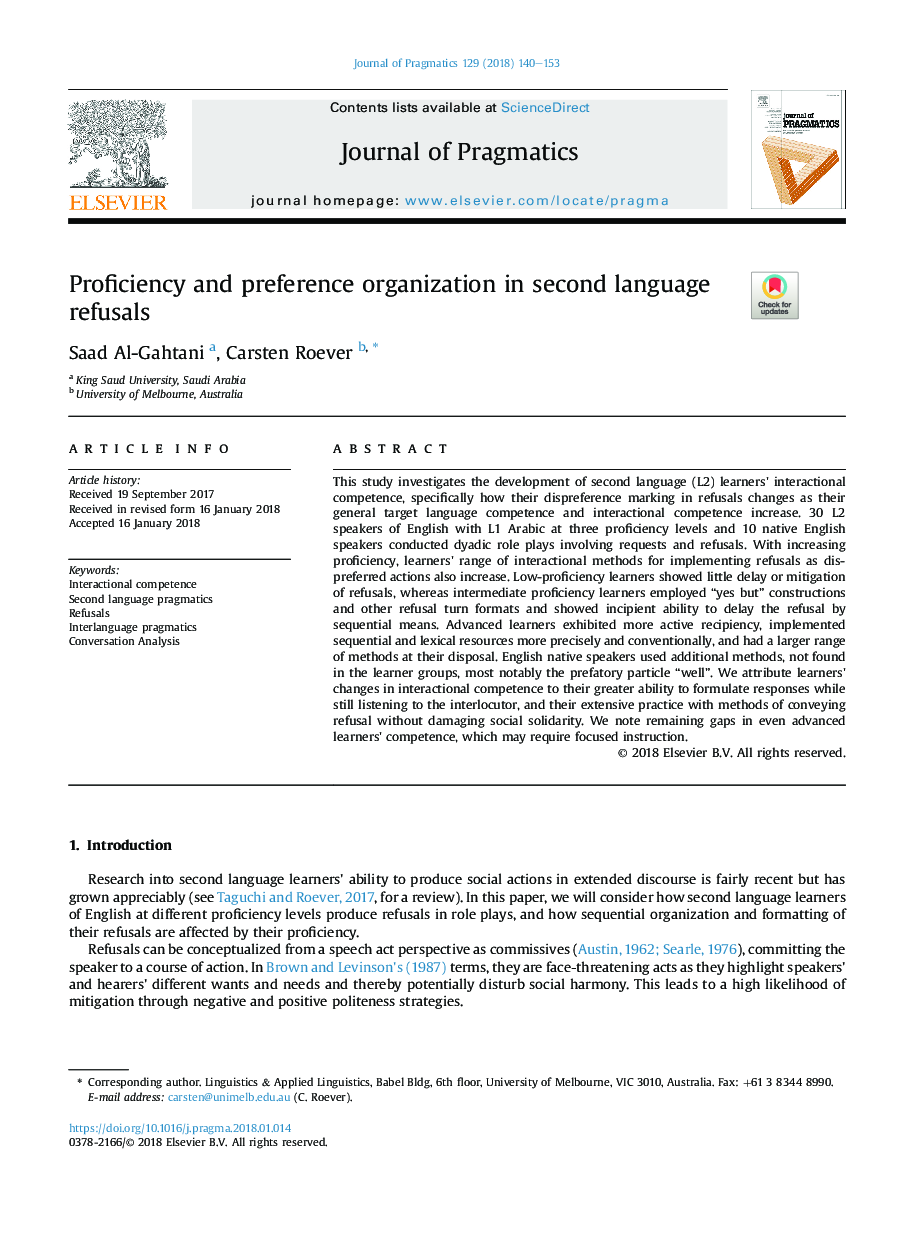| کد مقاله | کد نشریه | سال انتشار | مقاله انگلیسی | نسخه تمام متن |
|---|---|---|---|---|
| 7297349 | 1474671 | 2018 | 14 صفحه PDF | دانلود رایگان |
عنوان انگلیسی مقاله ISI
Proficiency and preference organization in second language refusals
دانلود مقاله + سفارش ترجمه
دانلود مقاله ISI انگلیسی
رایگان برای ایرانیان
کلمات کلیدی
موضوعات مرتبط
علوم انسانی و اجتماعی
علوم انسانی و هنر
زبان و زبان شناسی
پیش نمایش صفحه اول مقاله

چکیده انگلیسی
This study investigates the development of second language (L2) learners' interactional competence, specifically how their dispreference marking in refusals changes as their general target language competence and interactional competence increase. 30 L2 speakers of English with L1 Arabic at three proficiency levels and 10 native English speakers conducted dyadic role plays involving requests and refusals. With increasing proficiency, learners' range of interactional methods for implementing refusals as dispreferred actions also increase. Low-proficiency learners showed little delay or mitigation of refusals, whereas intermediate proficiency learners employed “yes but” constructions and other refusal turn formats and showed incipient ability to delay the refusal by sequential means. Advanced learners exhibited more active recipiency, implemented sequential and lexical resources more precisely and conventionally, and had a larger range of methods at their disposal. English native speakers used additional methods, not found in the learner groups, most notably the prefatory particle “well”. We attribute learners' changes in interactional competence to their greater ability to formulate responses while still listening to the interlocutor, and their extensive practice with methods of conveying refusal without damaging social solidarity. We note remaining gaps in even advanced learners' competence, which may require focused instruction.
ناشر
Database: Elsevier - ScienceDirect (ساینس دایرکت)
Journal: Journal of Pragmatics - Volume 129, May 2018, Pages 140-153
Journal: Journal of Pragmatics - Volume 129, May 2018, Pages 140-153
نویسندگان
Saad Al-Gahtani, Carsten Roever,